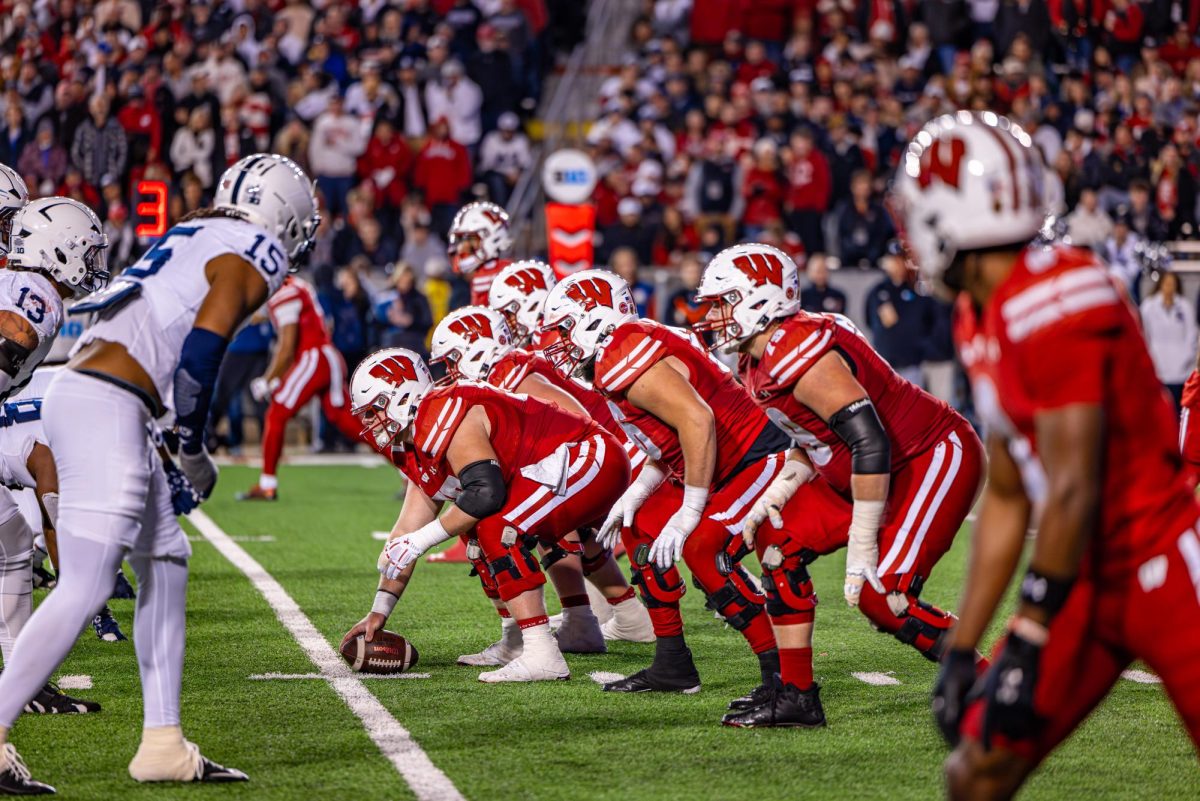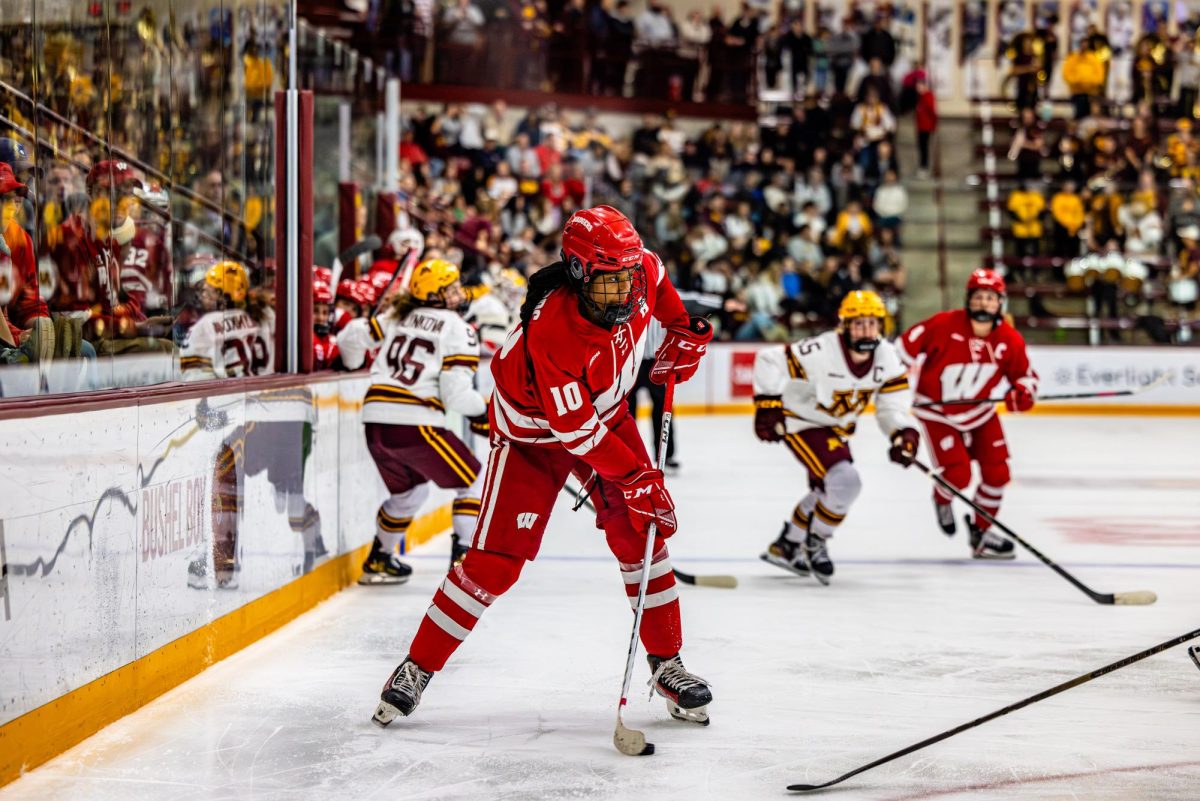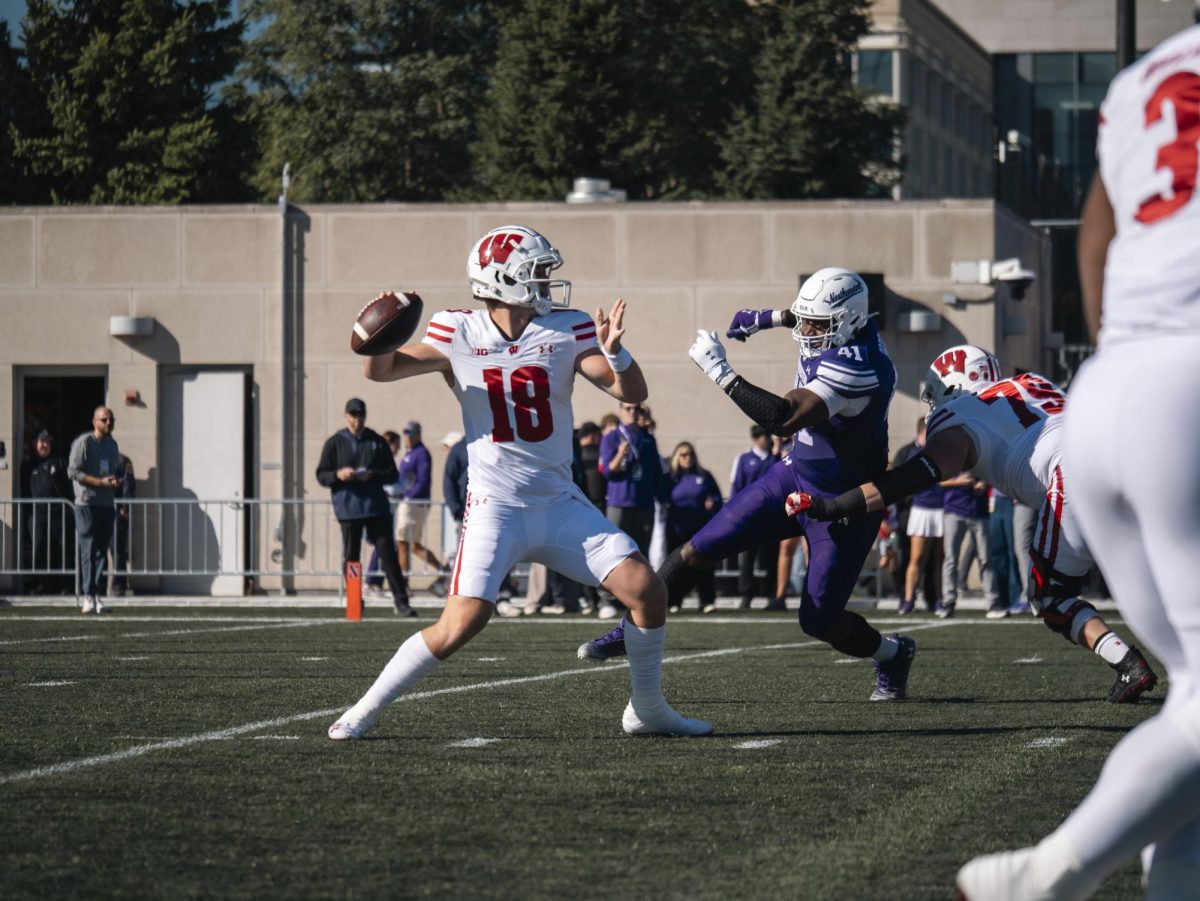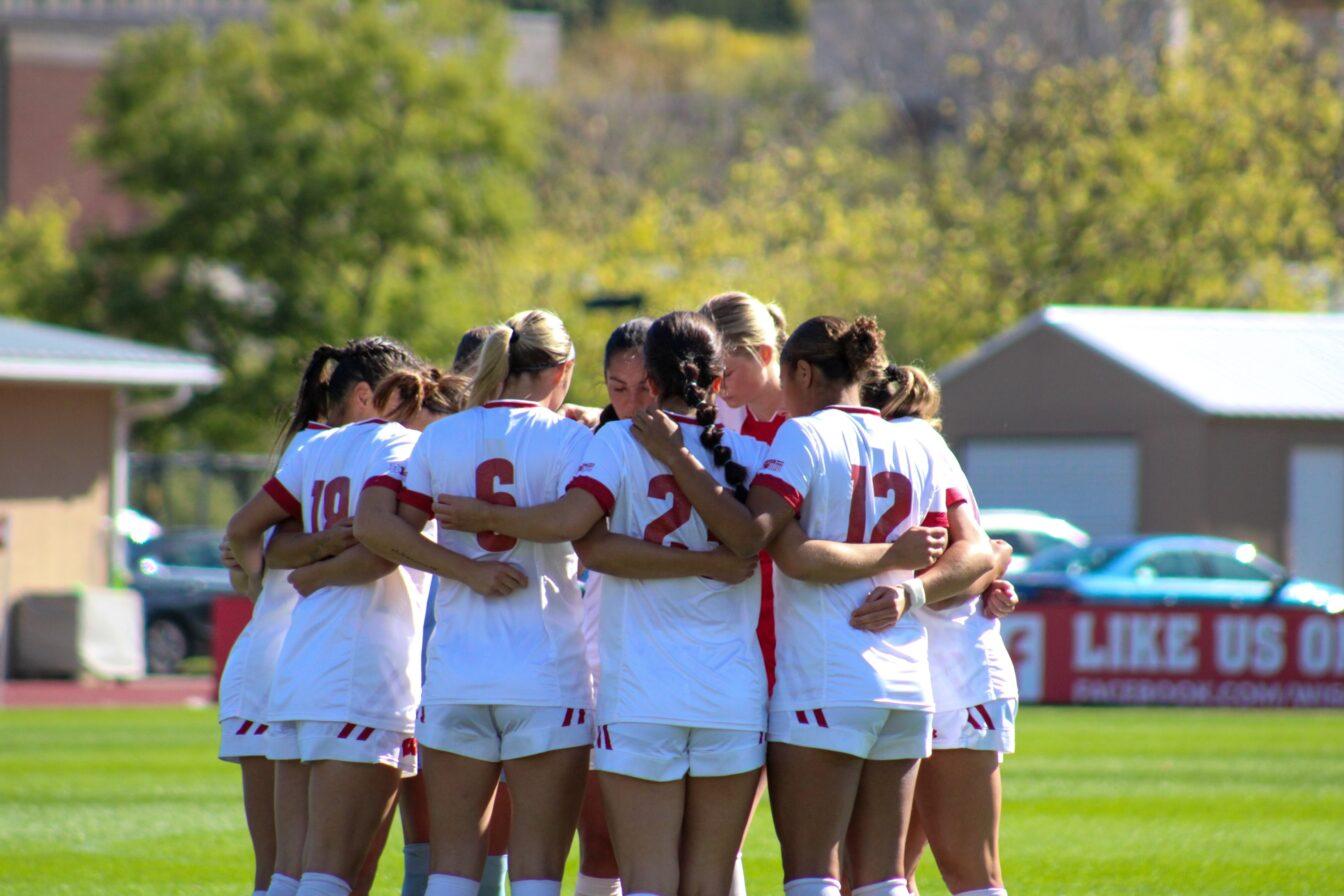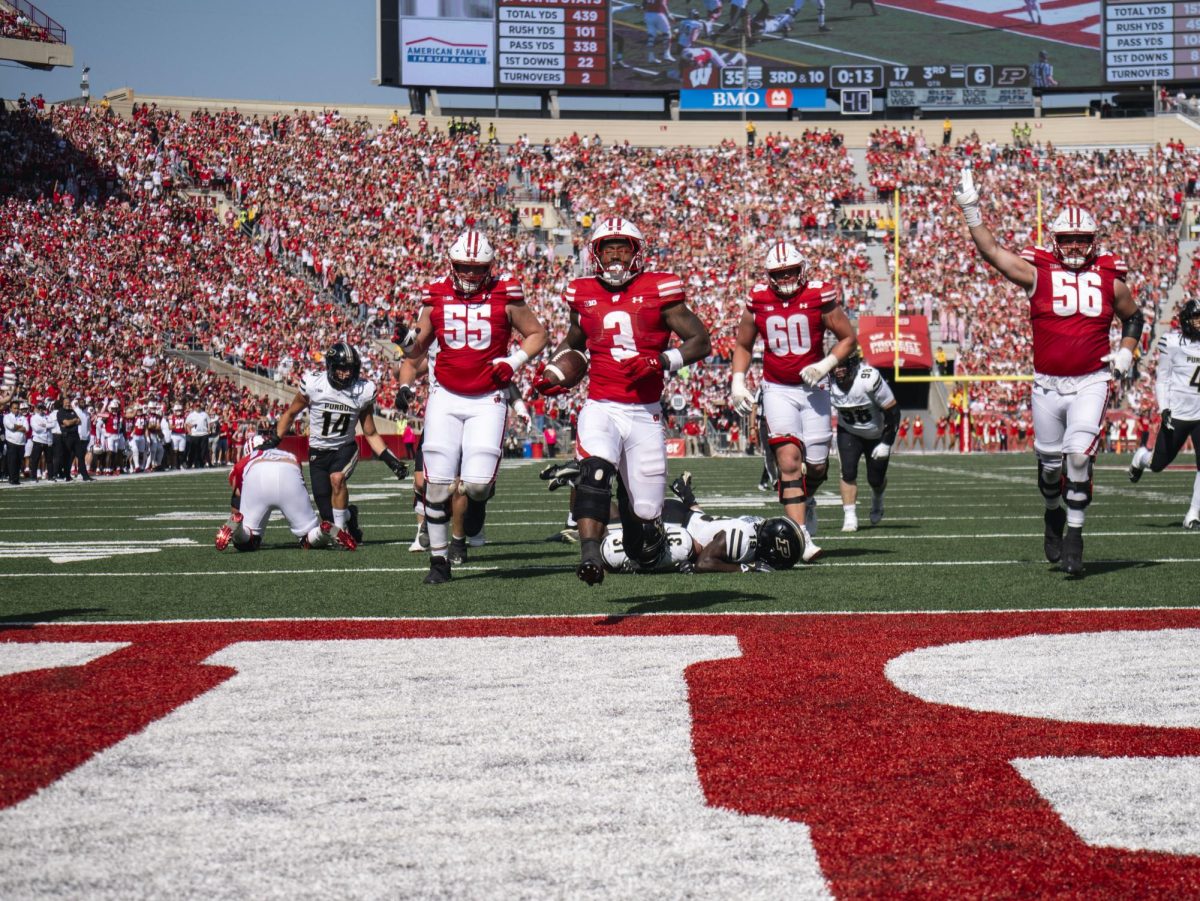When Vanessa Rauh moved to Madison in fall 1998 to begin her freshman year, she never really needed to adjust to life away from her parents. After all, she hadn’t lived with mom and dad since she was 14 years old.
The summer before her first year of high school, Rauh left home to attend boarding school in Texas.
Was she scared? Not really.
“It was kind of like, ‘Eh, call your parents once a week if you get around to it,'” said Rauh, a senior who occupies the No. 1 singles slot on UW’s women’s tennis team. “I was just young. I didn’t realize how far away I was, and that that was going to be the last time I lived at home.”
For the past seven years, Rauh (rhymes with “plow”) has lived on U.S. soil. That, however, is a long way from where she started.
Rauh grew up in Trier, a small town on Germany’s western edge. Born to an American mother and a German father, Rauh spent her early formative years speaking fluent English and German.
Rauh’s tennis career took off quickly. After picking the game up at age five, she joined a local club as an 8-year-old and played in tournaments whenever she had enough time. But what started out as 20-minute jaunts to local competitions eventually morphed into four- and five-hour expeditions across Germany by her 13th birthday.
By that time, however, the itinerancy had begun to wreak havoc on Rauh’s academic and social life. Tennis regularly pulled her away from school, not to mention friends. Because Germany’s interscholastic tennis programs pale in comparison to America’s, elite tennis players like Rauh must play in tournaments outside of — and often during — school.
For Rauh, who says she never even skips a lecture at UW, that juggling act wore thin. She needed to combine tennis and school. She needed to find a place where she could concentrate on both equally. She found that place in St. Stephens High School, a prep school in Austin, Texas.
The problem was, she’d only heard about St. Stephens through a tennis coach in Vermont, where her family vacationed each year. Yet at the tender age of 14, Rauh boarded a plane and bade farewell to her family and friends in Germany. She was traveling to a land ? Texas ? she’d never seen before, where she had no relatives, to attend a school she’d seen only in pictures.
“We had no idea what we were getting ourselves into,” Rauh said.
Because of the high cost of St. Stephens’ tuition, the Rauhs’ planned for Vanessa to study for one year and then return to Germany. That year, however, stretched into a year and a half. Rauh planned to move back home after the second year — she even moved all her belongings back to Trier. But 10 minutes before his wedding, Eric Schmidhauser, the St. Stephens’ tennis coach, made Rauh an offer she couldn’t refuse.
Schmidhauser knew Rauh wanted to finish high school at St. Stephens, and he also understood the depth of her tennis talent. In full tuxedo, the groom bounded up to Rauh carrying an encyclopedia’s worth of English books.
Why the hurry? The stack of books meant Rauh could complete 11th-grade English during the summer. That meant she could graduate high school after her junior year. That meant Wolfgang and Patricia would let her stay in the States for a final year at St. Stephens.
“If somebody cared that much to have me there, I mean, how could I not go back?” Rauh said.
Three years after arriving in America, Rauh graduated high school at the precocious age of 17. Yet she turned down the possibility of playing at an elite program like Stanford to come to UW.
Why? Simple math.
“You can look at [the Stanfords] and consider going there, but I knew there was a chance I’d be playing low in the lineup the entire four years,” Rauh said. “That works for some people, but I decided I wanted to play higher.”
It took Rauh four years, but this season she finally realized her pre-college goals. She finished the regular season 10-11 at No. 1 singles. It’s worse than the perfectionist would have liked, but impressive considering that four years ago she was out of tennis with torn ankle ligaments.
Rauh’s career, however, won’t be ending with the coming weeks’ NCAA tournament. She’s says she’s using college tennis as a stepping stone to a professional career in Europe. She plans to travel back to Germany this summer, where she’ll try to win enough prize money for gas money to the next tournament.
Call her a starving tennis player.
“What I’ll probably do is just play money tournaments in Europe, live at home or somewhere close,” Rauh said. “Play just closer money tournaments in Europe, which will be easier to finance. I won’t make as much money, but I won’t lose as much either.”
And the best part? Rauh finally gets to move back home.
“I haven’t lived at home in eight years,” Rauh said.
“It’ll be nice.”


